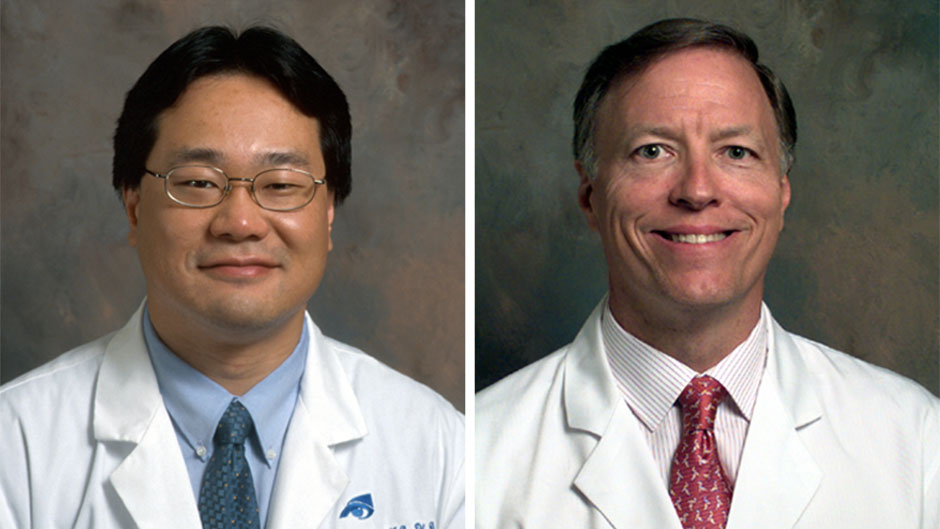The Bascom Palmer Eye Institute will be launching genetic studies in Miami’s Haitian community to identify a gene involved in controlling eye pressure that may be linked to glaucoma in all patients.
The study, funded through the generosity of Luz Maria and Alfredo Gutierrez, also includes beginning a study in Haiti to see if a relatively new laser treatment might be the ideal treatment in a resource-poor country disproportionately affected by glaucoma.
This research could lead to an exciting breakthrough in glaucoma treatment in the U.S. for patients of any ethnicity, as some countries, such as England, are using the laser treatment more often.
Dr. Richard Lee and Dr. Richard Parrish of Bascom Palmer Eye Institute at the University of Miami Miller School of Medicine were the first to publish data on the prevalence of glaucoma in the Haitian-American population. Their findings, based on data from 750 participants, show that nearly 26 percent of Haitian-Americans of all ages have signs and symptoms of various stages of glaucoma.
Glaucoma is the leading cause of irreversible blindness worldwide, disproportionately affecting African Americans and Latinos living in the U.S.
A disease characterized by slowly progressive optic nerve atrophy, glaucoma is typically a painless and silent blinding disease that can easily be screened for in a community setting and treated to prevent further vision loss and blindness.
Lee and Parrish’s research highlights the need to create awareness of differential glaucoma risk within ethnic communities of the U.S. to prevent further eye diseases and blindness. Along with previously published studies on the rates of glaucoma in specific populations, their report stresses the need for targeted screening within communities and has implications for policy changes in ocular disease screening to prevent blindness.
On the research front, Lee and Parrish, among other collaborators, believe this can be the launching point for genetic studies. They will begin with a cohort of Haitian-Americans in Miami and Haitians in Haiti for genetic studies to identify a gene involved in controlling eye pressure that may be generalized to all glaucoma patients.
They will also launch the laser glaucoma treatment study in Haiti to see if a relatively new laser treatment with long-term efficacy might be ideal for Haiti.
Bascom Palmer operates a clinic in Haiti’s capital of Port-au-Prince, and provides training and equipment to Haitian ophthalmologists. The doctor at the clinic estimates about 20 percent of the glaucoma patients seen are under 40 years of age, and 3 percent are children.
View the Haiti Special Report about work the University of Miami has been involved with in Haiti since the devastating earthquake on January 12, 2010.

